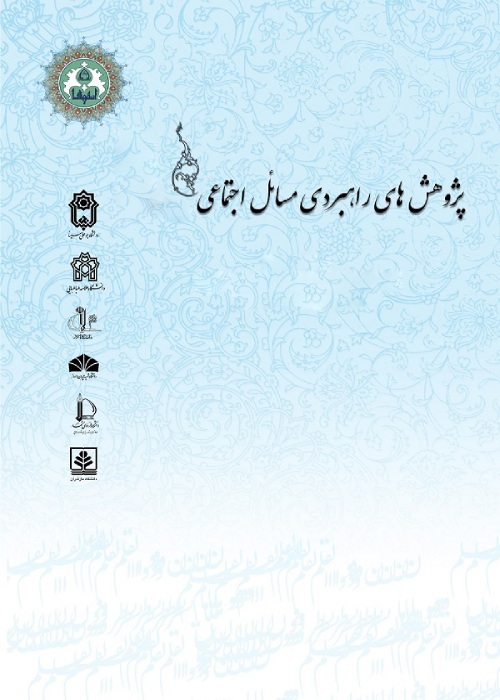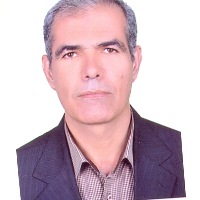Representation of Political Tribalism Mentality in Underdevelopment Kohgiluyeh and Boyer-Ahmad Province
Development is a process that should principally show that the set of social system has emerged from the undesirable state of the past and moved towards a state of life that is materially and spiritually better in accordance with the various basic needs and desires of individuals and social groups within the system. The formation of development in the West and the transition from a traditional society in the context of the modern nation-state atmosphere have caused other countries to pay attention to this issue. The Western-educated intellectuals themselves compare their countries with the West and ask why they have falled behind. Iran is no exception to this rule. In Iran, some people know the way of progress in relation to the outside world and some people know the way out of backwardness inside. Izadi considered backwardness in Iran to be caused by Iranian peoples’ temperaments (Izadi, 2006). Zibakalam sought the cause of backwardness in the decline of science (Zibakalam, 2006). Alamdari considered backwardness to be caused by the Iranians themselves and their land (1999). And Reza Gholi emphasized that the cultural factor prevented the formation of creative and constructive thinking (Reza Gholi, 2010). By examining the factors of backwardness from the experts’ perspectives in this field, it can be said that each of them, has considered some factors as the obstacles to development by examining the history of the Iranian society. As mentioned, from the different thinkers’ points of view, different variables have been considered as the development barriers. The variable examined in this study was political tribalism. Tribalism has various manifestations in different areas. In the social arena, it manifests itself in one style and context and in another way in the religious arena. In the arena of livelihood and politics, it appears in various other ways. Since it was not possible to provide an analytical study without considering the existing structure and context in the society, the present study considered underdevelopment caused by tribalism reigns just in Kohgiluyeh and Boyer-Ahmad Province. Despite the nation-state formation and the transition from tribal structures, the population in the province was still based on the tribal context and tribalism manifested itself in various areas to the extent that political culture was dominated by the tribal culture. This culture was reflected in electoral activities, recruitments, dismissals, and political and administrative appointments. Now, according to the issues raised, the researchers’ concern was to explore the process of political tribal mentality and underdevelopment in Kohgiluyeh and Boyer-Ahmad Province.
The present study took a qualitative approach with a systematic method. The research field was Kohgiluyeh and Boyer-Ahmad Province and the scientific and political elites of this province were considered. After the presence of the researchers in the research field and based on the data obtained from the field, in-depth interviews with the individuals were conducted. The participants included all the scientific and political elites, who lived in Kohgiluyeh and Boyer-Ahmad Province, as well as in Fars and Tehran provinces. The most important parameter for selecting these people was their level of reflection and concern about each of the two variables in recent years. A total of 12 people were interviewed. In the current study, purposeful and theoretical samplings were used to select the participants and concepts. The collected data went through 3 coding steps to build the theory. To formulate the theory in the first stage, the researchers began their work with open coding, based on which axial coding was performed. In fact, the researchers identified an open coding category and focused on it as the central phenomenon. The third step was selective coding. At this stage of coding, the researchers made a model. In the selective coding stage, the categories were described in relation to each other in the form of a supply model.
The results showed that tribalism had several positive mechanisms and functions, the capacities and potentials of which had not been used properly. Accordingly, in the participants’ opinions, tribalism characteristics, such as solving ethnic problems, controlling forces, and reducing some social harms, forces for supervision, forces for public promotion, etc., had to be highlighted and magnified in the society Tribalism and tribal relations had to be planned on these axes. Tribal functions had to be highlighted in the society rather than only in the political arena. In Kohgiluyeh and Boyer-Ahmad Province, these positive functions of tribalism were not used properly. Tribalism had entered the political arena, which was the subject of conflict and challenge between tribalism and development of the society. Accordingly, in the context of tribalism and political tribalism, there was no possibility of meritocracy and social justice could not grow and expand in the society. The central phenomenon in the present study was political tribalism, which was repulsive and hindered development in Kohgiluyeh and Boyer-Ahmad Province. Based on the participants’ views and perceptions, it could be said that political tribalism acted as a force that had hindered development in the province. Therefore, there was minimal possibility of the growth and expansion of the components and indicators of development in this society. It can be concluded that achieving development in tribal and tribal-based political societies is almost impossible.
- حق عضویت دریافتی صرف حمایت از نشریات عضو و نگهداری، تکمیل و توسعه مگیران میشود.
- پرداخت حق اشتراک و دانلود مقالات اجازه بازنشر آن در سایر رسانههای چاپی و دیجیتال را به کاربر نمیدهد.



